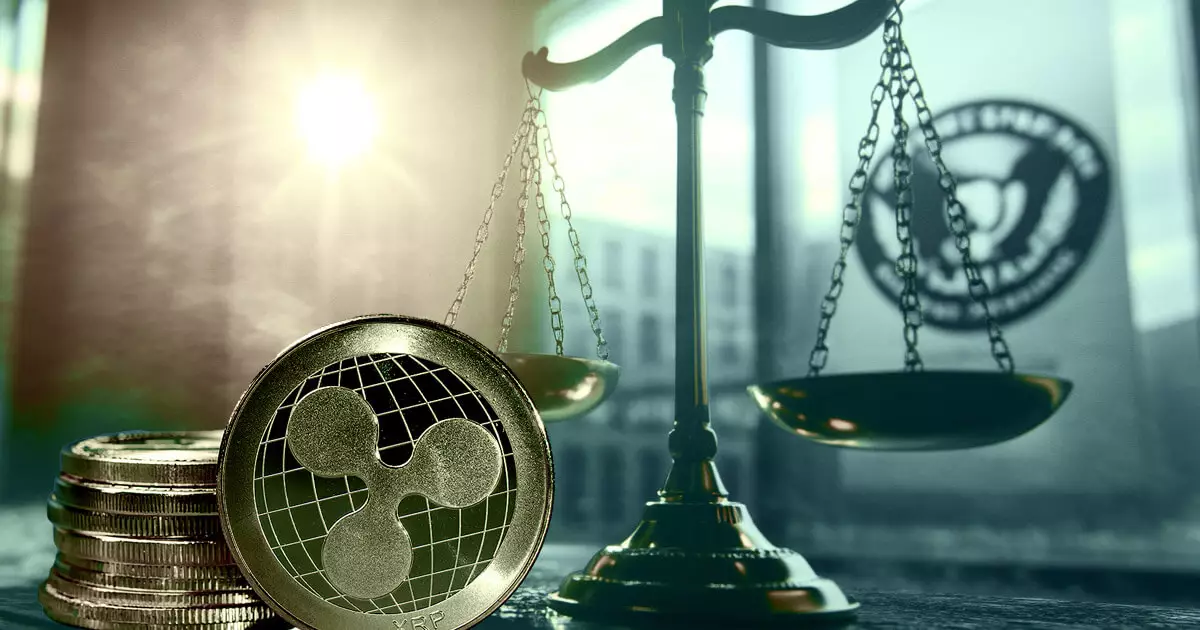The ongoing legal battle between Ripple and the U.S. Securities and Exchange Commission (SEC) represents a significant turning point in the world of cryptocurrency regulation. As both parties navigate the complexities of law and digital assets, recent developments indicate a clear stance from Ripple while the SEC continues to refine its arguments.
In 2022, the court found partial favor with Ripple, ruling that its sales of XRP to retail investors did not constitute a violation of U.S. securities laws. However, the judicial outcome was mixed: the court also acknowledged that XRP sales to institutional investors did indeed breach securities regulations. This duality created a landscape of ongoing contention—one that the SEC aims to reclaim in its latest appeal. The SEC’s notice submitted to the Court of Appeals for the Second Circuit on October 17 illustrates this pursuit.
The crux of the SEC’s argument hinges on Ripple’s additional sales strategies: namely, programmatic sales of XRP on various trading platforms and alleged distributions to employees and other parties. The agency has openly declared its intent to challenge not only Ripple’s operations but also the actions of its prominent executives, Brad Garlinghouse and Chris Larsen. By seeking a “de novo” review, the SEC aims to ensure that its arguments are scrutinized with fresh eyes, without deference to the original decision.
This move is particularly telling; it shows the SEC’s determination to address aspects of the case that could set important precedents for how digital asset sales are treated under U.S. law. By focusing on the sales frameworks employed by Ripple, the SEC appears poised to create a more defined regulatory environment for cryptocurrencies.
Ripple’s Chief Legal Officer, Stuart Alderoty, has been clear in his response to the SEC’s appeal, emphasizing the fact that the ruling asserting XRP is not a security remains intact and unchallenged. His assertion that “No surprises here” captures Ripple’s confidence in its legal position. The company’s strategy seems to hinge on framing the SEC’s appeal as an overreach rather than a legitimate challenge to the established position on XRP.
Moreover, Alderoty’s commitment to a cross-appeal underlines Ripple’s willingness to proactively protect its interests. By presenting its case, Ripple is not merely responding defensively; it is actively engaging in the broader discourse surrounding cryptocurrency regulation.
The implications of this legal tussle are profound, not only for Ripple but also for the cryptocurrency ecosystem at large. As the SEC continues its examination of Ripple’s practices, other cryptocurrency stakeholders will closely monitor the developments, aware that the rulings could influence how tokens are classified and regulated in the future. The case could either pave the way for clearer regulations that benefit innovation or reinforce a climate of caution for emerging projects.
While the legal proceedings unfold, there is a growing need for a balanced regulatory framework that fosters growth without stifling innovation. The SEC’s actions and Ripple’s subsequent strategies could help illustrate not only the complexities involved in regulating digital assets but also the potential for constructive collaboration and compliance that benefits all parties involved.
As we look to the future, the outcome of this dispute will likely shape the narrative around cryptocurrencies. While the SEC’s recent filings signal a proactive stance, stakeholder speculation surrounding the timing and motivations of the appeal will only add layers to an already complex situation.
Ripple’s resilience and determination, as showcased by its readiness to appeal, signify a commitment to navigating these turbulent waters while advocating for a clear legal framework. The ultimate resolution of this case could very well determine the playing field for cryptocurrency firms operating in the United States.
The Ripple versus SEC saga continues to unfold, embodying the challenges and opportunities facing the digital currency sector. As Ripple stands firm in its position, the coming months will be crucial in defining the future of cryptocurrency regulation and compliance.

